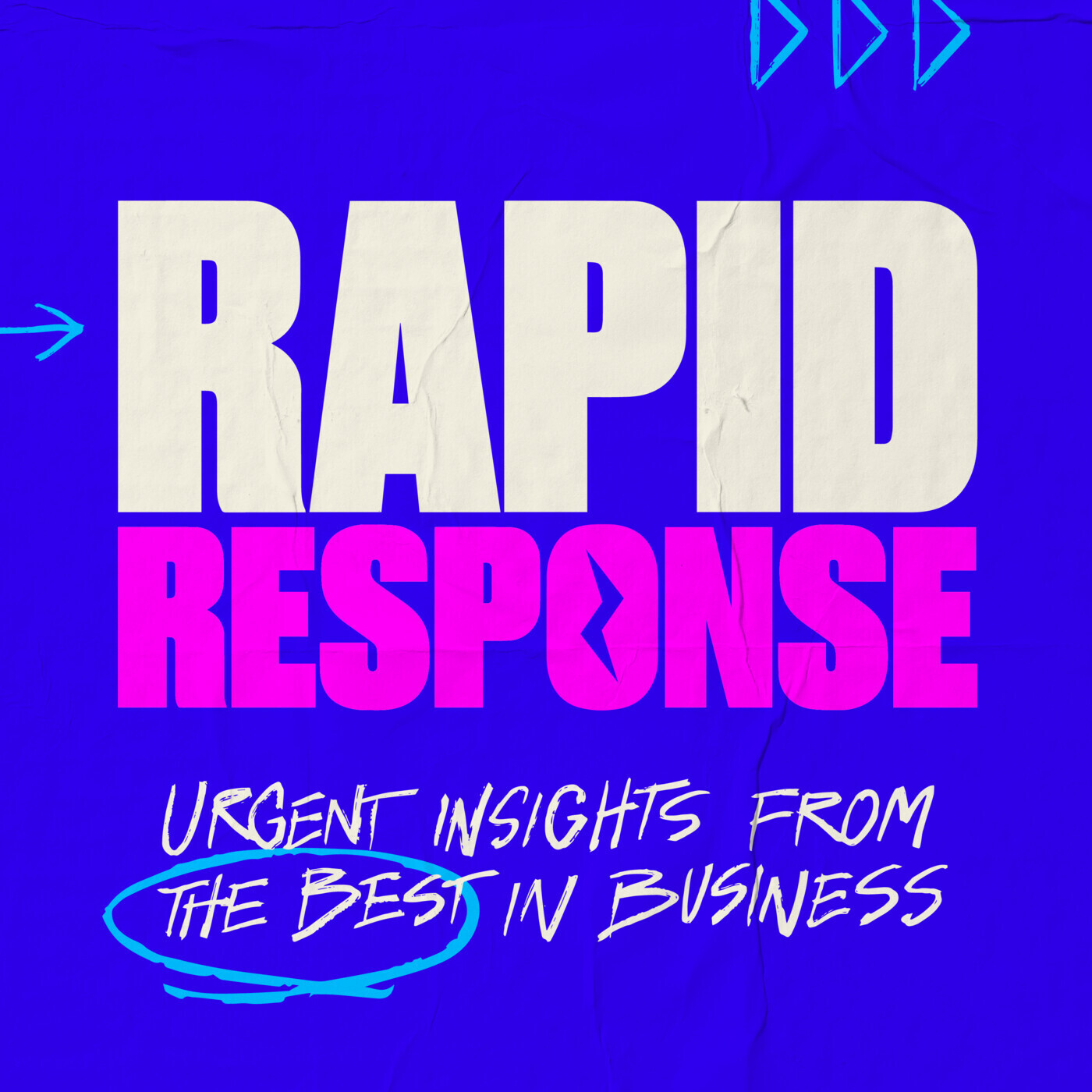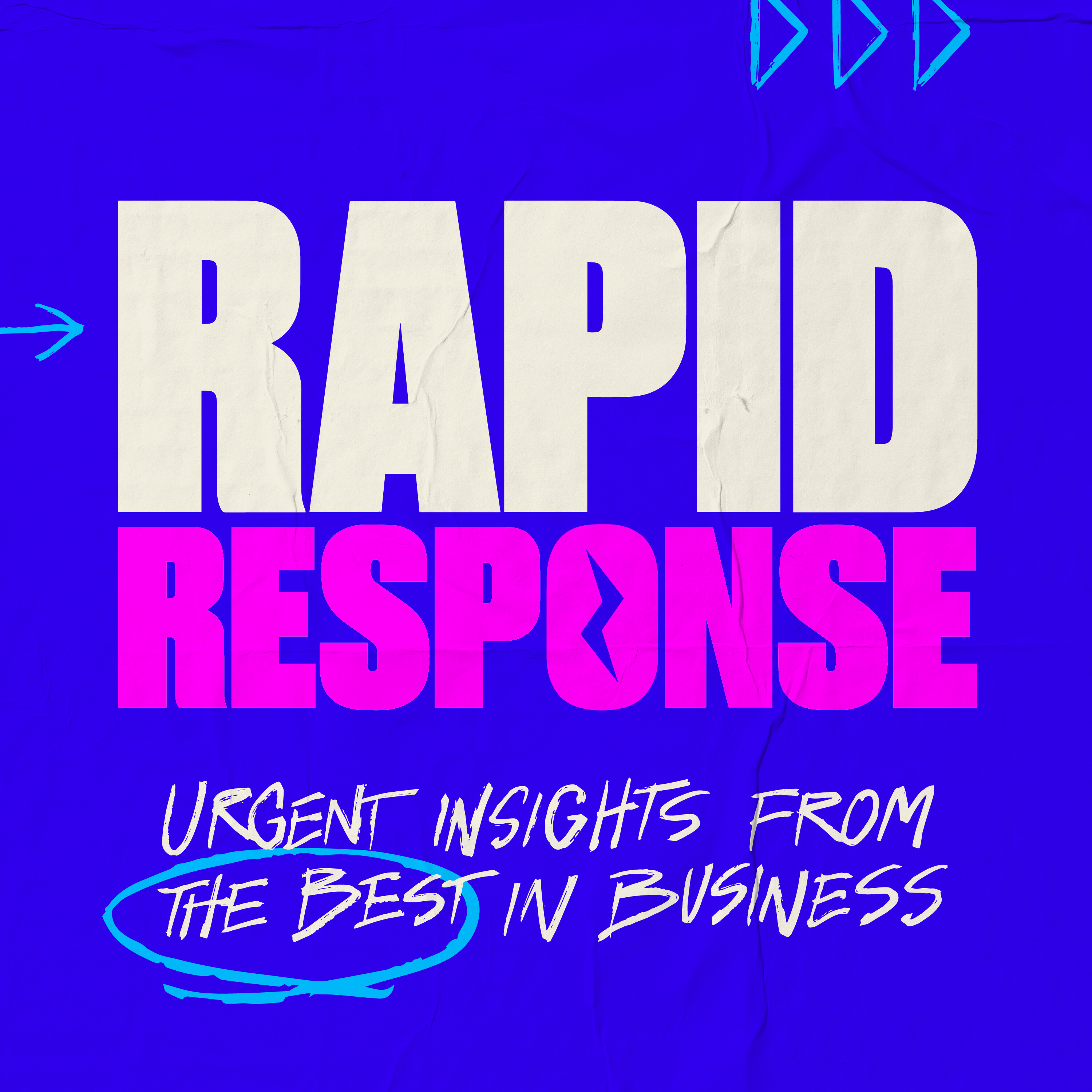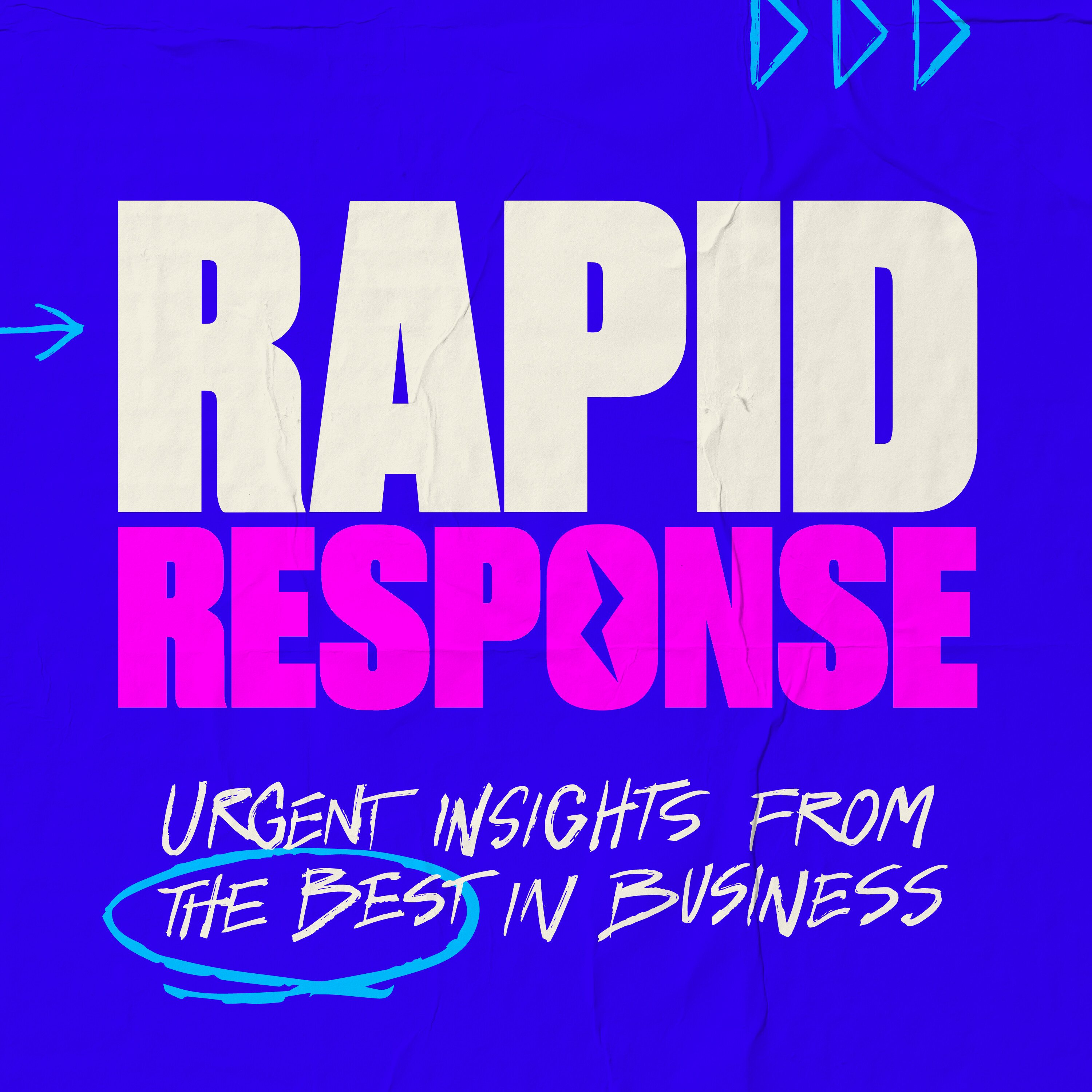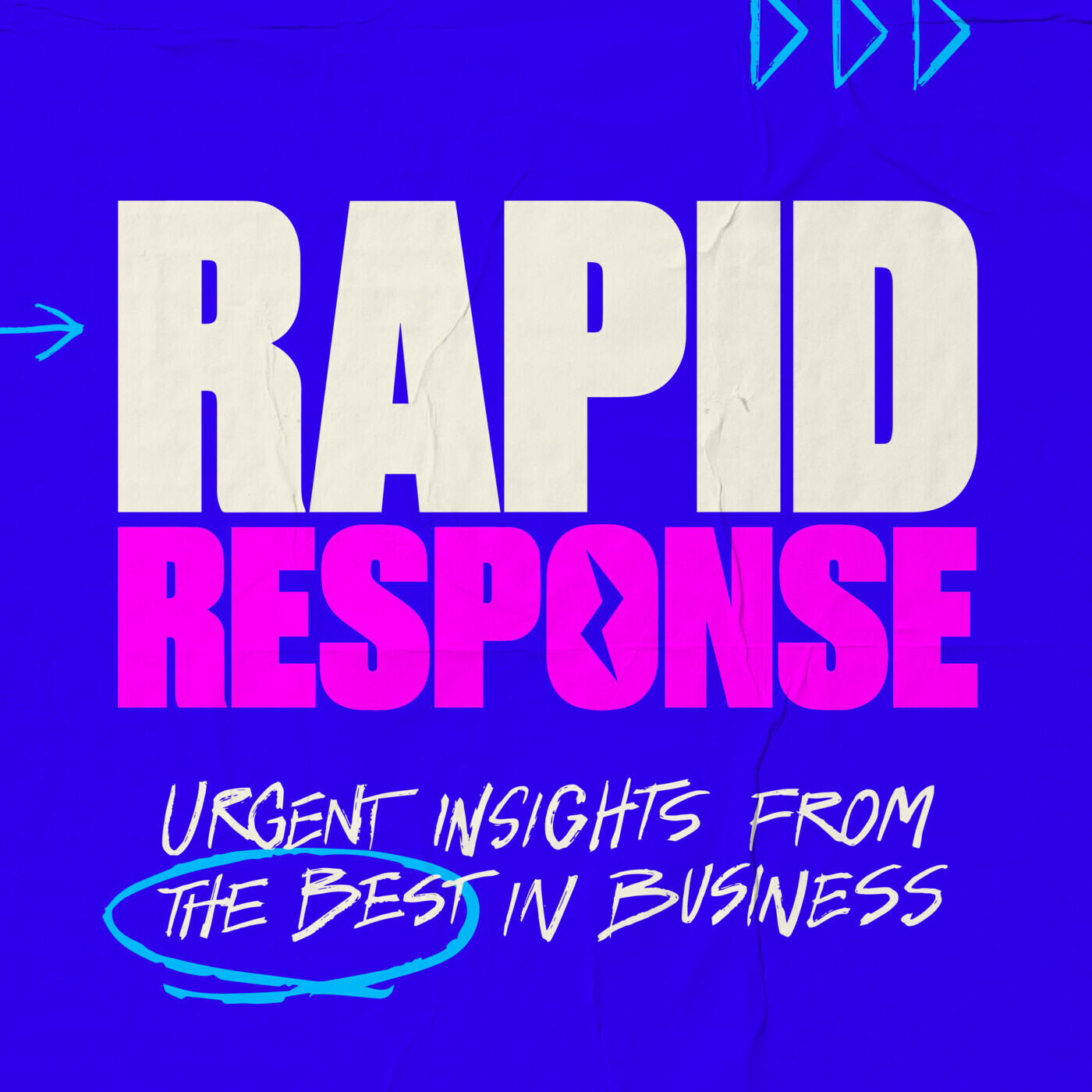
August 6, 2024 • 27min
Rapid Response: Menopause is having a hot moment, with Midi Health’s Joanna Strober
Masters of Scale
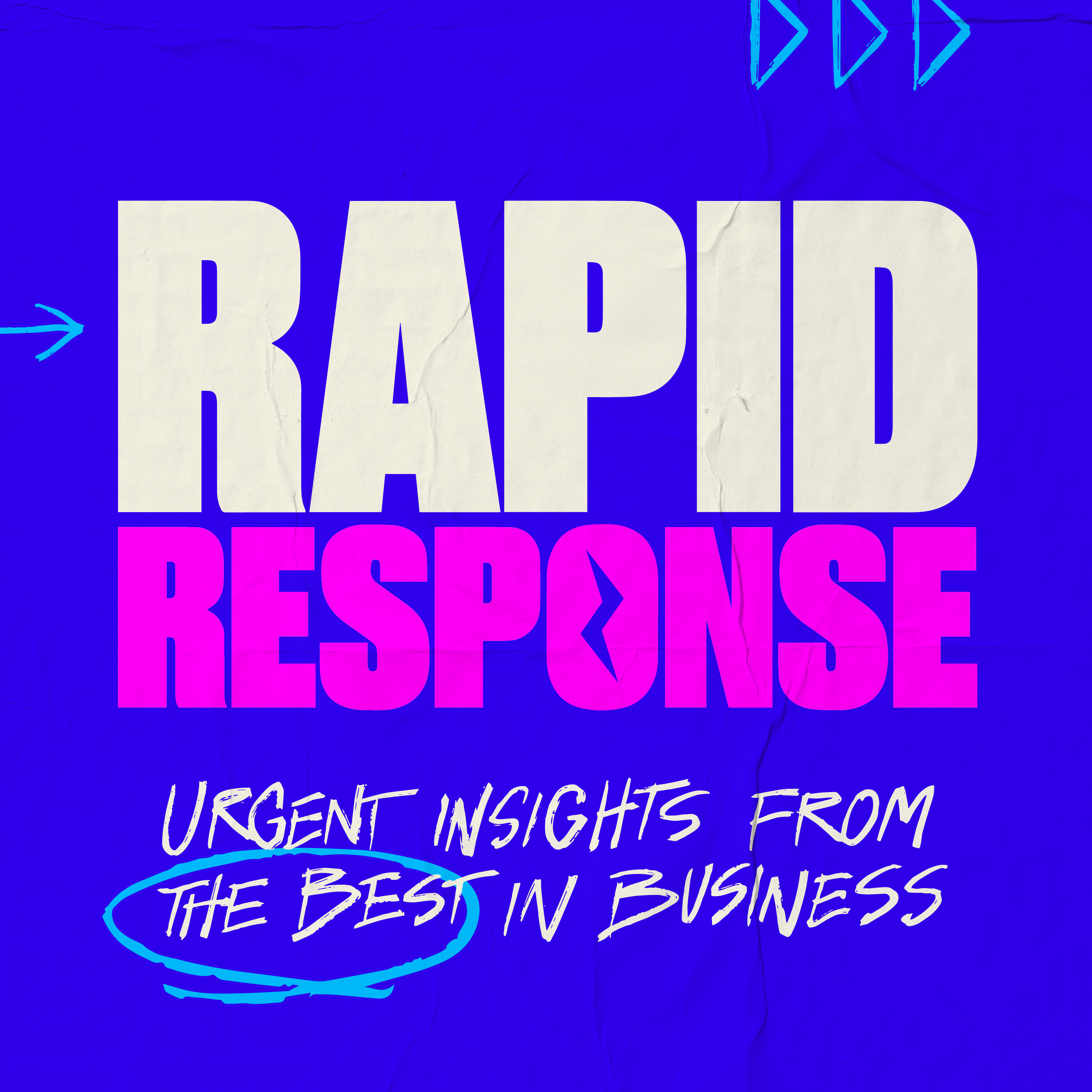
Key Takeaways
- Menopause is having a moment in 2024, with increased attention from media, lawmakers, and researchers after decades of being overlooked
- A 20-year-old study that scared women away from hormone treatments has been debunked, opening the door for better menopause care
- Menopause symptoms can severely impact women's careers and quality of life, but are often dismissed as normal aging
- There is a major lack of training and specialization in menopause care among doctors, creating an opportunity for companies like Midi Health
- Hormone treatments can provide significant relief for menopause symptoms and may have preventative health benefits
- Insurance coverage is key to democratizing access to quality menopause care
- There is a huge unmet need and market opportunity in women's health, particularly around menopause
- Women entrepreneurs often undersell their companies' potential when pitching to investors
- More research funding is needed for women's health issues like menopause, which impacts every woman
Introduction
Joanna Strober is the CEO of Midi Health, a company focused on providing care for women experiencing menopause and perimenopause. In this episode, she discusses why menopause is finally getting mainstream attention, the impact of menopause on women's lives and careers, and the opportunity to improve care in this underserved area of women's health. Strober shares insights on building a fast-growing company in women's health, fundraising as a female founder, and why she isn't afraid of controversy in pursuit of her mission.
Topics Discussed
The "Menopause Moment" of 2024 (02:28)
Strober explains that menopause is having a cultural moment in 2024, with increased attention from media, lawmakers, and researchers. She attributes this to:
- The debunking of a 20-year-old study that scared women and doctors away from hormone treatments for menopause
- Women's anger over 20 years of inadequate care and research due to misinterpretation of that study
- Growing awareness of the impact of menopause symptoms on women's quality of life and careers
Strober emphasizes: "We're really suffering here and we deserve better care, and it's time that you start to give it to us."
Debunking Misconceptions About Hormone Treatments (04:41)
Strober discusses how the Women's Health Initiative study from 2001 was misinterpreted, leading to a halt in estrogen research and treatments. Key points:
- The study looked at the wrong age group (mostly women over 65)
- Data was misinterpreted, overlooking potential benefits for women within 10 years of menopause
- The progesterone used in the study is no longer used in current treatments
- No new data is needed to understand the misinterpretation, but more research is still needed on preventative benefits of estrogen
Strober notes: "People are very scared of breast cancer. So as soon as there was any indication at all that perhaps this was causing breast cancer panic, and everything stopped."
The Physical and Cultural Aspects of Menopause (07:11)
Strober explains how menopause impacts women physically and culturally, using the example of painful s*x:
- 80% of women experience painful s*x due to thinning vaginal walls as estrogen decreases
- This leads to decreased libido and potential relationship issues
- Cultural taboos prevent open discussion of these issues
- Estrogen treatments can help, but are often not suggested by doctors or therapists
She emphasizes: "You can't just say, is it just physical? Is it just emotional? It's all very connected."
Lack of Specialized Menopause Care (09:47)
Strober highlights the lack of specialized menopause care in the medical field:
- The average OB-GYN gets only 2 hours of menopause training in medical school
- OB-GYNs primarily focus on pregnancy and childbirth
- Midi Health has to combine multiple specialties (hormones, bone health, brain health, cardiovascular) to provide comprehensive care
- The company has developed its own extensive training system for clinicians
Midi Health's Approach and Expansion (11:37)
Strober outlines what makes Midi Health unique and its plans for expansion:
- The only national virtual care company for menopause covered by insurance
- Aiming for 70% coverage of women on commercial insurance plans by end of 2024
- Expanding into weight loss treatments (like Wegovy and Ozempic) and testosterone treatments
- Focusing on the interconnected issues of hormones, weight, and s*x
On testosterone treatments, Strober notes: "There is emerging literature and evidence that testosterone can be good for our mood, for our bone health. And while testosterone is not FDA approved for women, it is possible to do it in very slow doses and monitor closely."
Impact of Menopause on Women's Careers (19:16)
Strober discusses the often-overlooked impact of menopause on women's professional lives:
- 50% of women think about leaving their jobs due to menopause symptoms
- 10% actually do leave their jobs because of menopause
- Symptoms like brain fog and lack of sleep can severely impact work performance
She emphasizes: "This is not just something about, oh, we just want to help them feel better. It's really to help us thrive, to help us provide for our families. It's a really important thing, this care."
Workplace Accommodations for Menopause (20:54)
Strober takes a controversial stance on workplace accommodations for menopause:
- She believes proper treatment eliminates the need for special accommodations
- Accommodations could potentially be more stigmatizing
- Focus should be on providing access to care so women can thrive at work
Misconceptions About Menopause and Perimenopause (21:46)
Strober clarifies common misconceptions about menopause and perimenopause:
- Menopause is defined as not having a period for one year
- Perimenopause starts around age 35 when hormones begin fluctuating
- Many women don't realize they're in perimenopause and suffer unnecessarily
- There is no definitive test for perimenopause, making it difficult to diagnose
She emphasizes: "What I want women to know is, at a much younger age, start thinking, if I'm not feeling right, this could be perimenopause, and I should be getting treatment for it early, because you don't have to suffer."
Fundraising as a Female Founder (24:00)
Strober shares insights on successfully raising capital as a woman entrepreneur:
- Women often undersell the potential size of their businesses
- Importance of telling a big story and articulating the full market potential
- Feedback from honest pitch sessions helped her refine her approach
- Emphasizing the massive addressable market (every woman in the country) was key
She reflects: "I think a lot of times we don't tell the story. We women don't tell the story big enough."
The Stakes for Women's Health (26:49)
Strober discusses what's at stake in the current moment for women's health:
- Need to prove that a large, successful company can be built focused on women's health
- Disproportionate funding for men's health issues (like erectile dysfunction) compared to women's health
- Potential for major impact on issues like Alzheimer's and cardiovascular disease that disproportionately affect women
- Importance of increased research funding for women's health issues
She emphasizes: "The amount of money that's gone into erectile dysfunction versus the amount of money that has gone into sexual wellness for women is just totally unbalanced."
Conclusion
Joanna Strober and Midi Health are at the forefront of a growing movement to improve care for women experiencing menopause and perimenopause. By combining virtual care, insurance coverage, and a comprehensive approach to treatment, they aim to address a massive unmet need in women's health. The cultural moment around menopause in 2024 presents an opportunity to drive real change, but challenges remain in terms of medical training, research funding, and cultural taboos. As Strober works to build a large, successful company in this space, she hopes to pave the way for more investment and attention to women's health issues that have long been overlooked.

